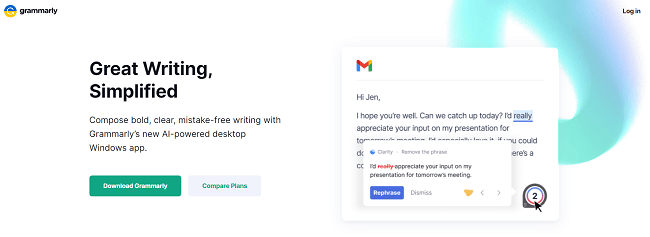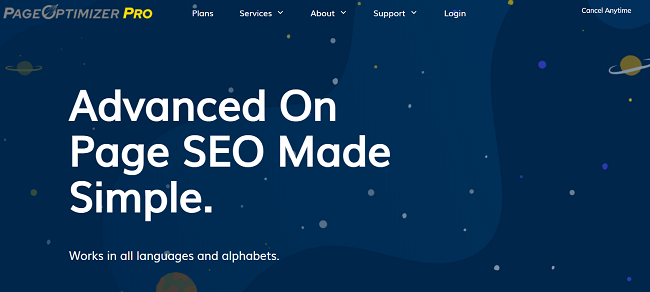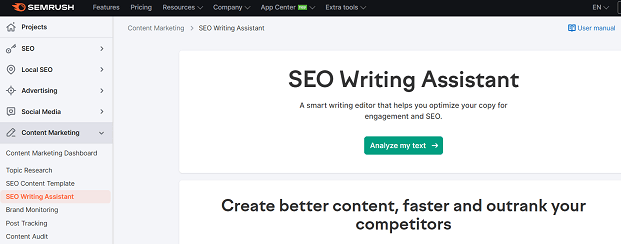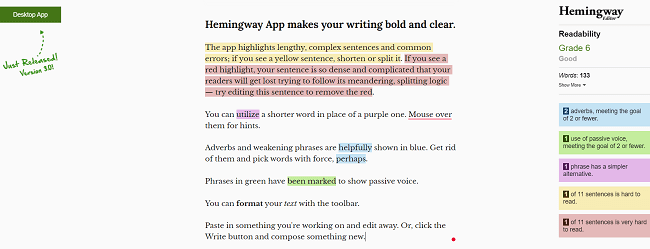10 Best Content Writing Tools For SEO (2024 Top Picks)
Looking for tools to help you write SEO-driven content that ranks? We’ve got you covered.
In this post, we’re looking at the best content writing tools for SEO. These tools will help you save time and write better, more engaging, and more well-optimized content.
They’re a must-have addition to your digital marketing toolkit if you want to stand the best chance of ranking highly on the search engine results pages (SERPs).
The best content writing tools for SEO – summary
TL;DR:
- Frase – Best for most users. It’s an end-to-end content creation tool. Use it to research, writer, and optimize your content so it’ll rank. AI writing functionality included.
- Surfer SEO – One of the best content optimization tools on the market.
- Grammarly – Best for grammar & plagiarism checking.
- PageOptimizer Pro – Best for on-page SEO optimization.
#1 – Frase
Frase is an AI-powered content writing tool that can help you with every step in the content creation process. You can use it to optimize your content for organic search as well.

You can use Frase to aid keyword research, write your content and ensure that it’s SEO optimized. The AI-powered technology makes the whole process super quick and simple, making it a good choice for beginners and solopreneurs.
With Frase, you can create optimized content briefs in just a few clicks. All you have to do is select a target search query and Frase will design a brief based on the top results for your chosen query. It will then provide you with information like main keywords to target, heading distribution, and more to help you quickly and easily create highly optimized content.
When it comes to writing, Frase also has a bunch of tools that can speed up the process. You can use the Write For Me feature that will complete your sentences and generate whole new bodies of text based on your prose and data taken from the top-ranking pages.
You can also use the automatic paraphrasing and rewriting tool to improve the quality of your work. Frase also provides tons of features that can help you optimize and analyze your content, making it a great all-in-one option.
I particularly like their analytics feature which turns Google Search Console data into actionable insights & helps you find opportunities within your content.
Pros and cons
| Pros | Cons |
| All tools are easy to use | Lowest plan only supports one user |
| Streamlines content planning and creation | No free trial available |
| AI writing tools make producing content easy | |
| Powerful analytics that turns Google Search Console data into actionable insights |
Pricing
Frase plans start from $14.99/month or $12/month when billed annually. Start a 5-day trial for $1.
Read our Frase review.
#2 – Surfer SEO
Surfer SEO is a content planning and optimization tool that can help you to improve your search engine optimization scores and increase your post’s ranking potential.

Surfer is one of the best tools available for content planning and strategizing, as it has a range of features that can help you to find keyword ideas and turn them into content with high ranking potential.
Based upon just one keyword, Surfer will provide tons of related search terms, and categorize them into relevant groups which can help you target multiple search terms within one piece of content. It will also provide insight relating to search intent and volume.
Then, you can use the AI-powered brief tool to flesh out an SEO-optimized brief for your article briefs in just a few clicks.
Surfer also includes a content editor tool that will score writers’ content as they produce it and track which relevant search terms have been included and how often. You can also use the Surfer audit tool to edit and optimize existing content on your site.
Overall, Surfer is one of the best tools for streamlining content planning and optimization. It’s also a particularly good choice for site owners that outsource writing tasks, as you can use Surfer to create detailed briefs for writers, and maintain consistent quality standards thanks to the content scoring system.
I particularly like how well Surfer works with other platforms & how useful it is for teams. For example, Content Editors can be generated and shared to unlimited team members via a share link. Then, the Chrome extension allows you to optimize content directly within Google Docs and WordPress.
Pros and cons
| Pros | Cons |
| User-friendly interface | Can be expensive compared to others |
| All-in-one content planning & optimization features | |
| Auditing tool included | |
| Optimize content inside Google Docs and WordPress with Surfer’s Chrome extension |
Pricing
Plans start from $89/month with annual discounts available. Try with a 7-day free trial of their features.
Read our Surfer SEO review.
#3 – Grammarly
Grammarly is one of the best spelling and grammar tools available, and it’s the perfect addition to any content creator or marketer’s toolkit. When it comes to SEO, spelling, and grammar are extremely important, and it also impacts user experience too.

However, you don’t need to rely on outdated tools like Microsoft Word Spell Check to improve your content. Grammarly is an easy-to-use online writing assistant that can be installed as a chrome browser extension.
Not only will Grammarly detect obvious spelling mistakes and grammatical errors, but it will also suggest higher-level grammatical changes that you can make to optimize and improve your content overall. It will even detect the tone of your content and offer suggestions and edits that you can make.
As a browser extension, Grammarly can detect spelling and grammar issues across the board, whether you’re writing emails in Gmail, or editing your site content in the WordPress Gutenberg editor. Overall, it’s a must-have tool for content creation.
Pros and cons
| Pros | Cons |
| Free plan available | Features like tone and plagiarism checking are premium features |
| Easy-to-use browser extension | |
| Affordable paid plans |
Pricing
Grammarly has a free plan available. Paid plans start from $12/month.
#4 – PageOptimizer Pro
PageOptimizer Pro, also known as POP is an SEO tool that can help writers and marketers easily optimize their web content. This tool is powered by Kyle Roof’s SEO method and has over 400+ proven results.

To use the tool, all you have to do is input the target keywords, domain, and target page. Then choose your competitors and geographical region and the tool will create a detailed article briefly for you. You can then export the briefs and work on them in Excel or Sheets or work on them from within the POP dashboard.
As you create your content, the content editing tool will provide optimization suggestions and give you a report card that gives your posts a score and details how well it’s likely to rank in the SERPs. Page Optimizer Pro is a great choice for content creation, and it’s one of the most well-thought-out tools on the market.
Pros and cons
| Pros | Cons |
| Free 7-day trial available | UI is a bit clunky |
| Uses a science-backed SEO approach | |
| Easy-to-use with Chrome extension available |
Pricing
Plans start from $27/month for up to 12 reports per month.
#5 – SEO Writing Assistant by Semrush
Semrush SEO Writing Assistant is a smart writing assistant that you can use to optimize your SEO content.

It’s one of the most powerful writing assistants on the market and analyzes your content in several areas, including readability, SEO, and tone of voice. It also scores it in all areas and provides tips on how to improve using real-time data compiled from the top-ranking results.
SEO Writing Assistant integrates with MS Word 365, Docs, and WordPress, so you can use it wherever you like to write. It’s included as part of the Semrush platform, which includes many other SEO tools.
It’s also worth mentioning that Semrush is the most complete SEO and content marketing toolkit on the market. You get access to far more tools than just the SEO Writing Assistant. In fact, far too many to mention here.
This is why I highly recommend signing up for a Semrush free trial – it can power the majority of any content & SEO strategy. You get access to backlink analysis, content research, content optimization, PPC research, social media publishing, analytics, a blogger outreach tool, and more.
Pros and cons
| Pros | Cons |
| Powerful content optimization tool | Free accounts limited to one Content Template. |
| Checks writing in four areas | |
| Doubles up as a plagiarism checker | |
| Integrates with popular writing editors | |
| Paid version includes a full suite of SEO and content marketing tools |
Pricing
The SEO Writing Assistant is free, but you’ll need to sign up for a Semrush account first. Free accounts are limited to one Content Template. Paid plans start from $129.95/month.
Read our Semrush review.
#6 – SEO PowerSuite
SEO PowerSuite is an all-in-one SEO software solution. You can download it for free and use its many tools to help you produce content that ranks.

The built-in Website Auditor tool is especially useful for content writing. It has a content analysis feature that helps you to optimize your work for on-page ranking factors.
You can also use the Rank Tracker for keyword research to discover keywords to inform your content strategy; the LinkAssistant to build links that help your content rank; and the SEO SpyGlass tool for competitor and backlink research.
While the free version doesn’t allow you to save projects, you can get a lot of use out of it. And the paid plans are quite affordable.
Pros and cons
| Pros | Cons |
| All-in-one SEO toolkit | Downloadable software |
| Generous free plan | |
| On-page optimization | |
| Competitor and keyword research |
Pricing
You can download SEO PowerSuite for free. To unlock premium benefits, you can purchase a license for $299/year.
#7 – Hemingway
The Hemingway App is one of the best free SEO writing tools around. It’s a completely free text editor and readability checker. You can use it to make sure your writing is clear and concise.

Readability is important when it comes to web content. Online readers have short attention spans—they don’t want to have to process complex, hard-to-read sentences, and technical jargon.
Producing well-written content that’s easy to read helps to ensure a better user experience. This is rewarded by search engines and gives you the best chance of ranking highly for your target keywords.
The Hemingway Editor helps with this. It analyzes the text you write and checks it for readability issues like complex phrases, hard-to-read sentences, passive voice, and frequent adverbs.
Sentences that could be improved are highlighted in the editor and color-coded so you know what needs to be fixed, and your work is given an overall grade in the sidebar
Pros and cons
| Pros | Cons |
| Powerful readability checker | Doesn’t integrate with WordPress or Google Docs |
| Easy-to-use editor interface | |
| Color-coded suggestions | |
| Desktop app available |
Pricing
The online Hemingway Editor is free to use. You can download a desktop version of the app for $19.99.
#8 – Clearscope
Clearscope is an enterprise-level SEO content optimization platform. It’s used by some of the biggest businesses including YouTube, Nvidia, Adobe, and Webflow.

You can use Clearscope to build winning content briefs and outlines and optimize your content in the built-in text editor with real-time scoring and customized feedback.
Clearscope reports enable you to audit top-ranking Google search results and analyze the data, and the keyword discovery tool helps you find search queries to target in your content strategy.
It integrates easily into your existing workflows. You can hook it up to Google Docs using an add-on, or to WordPress via a plugin.
Pros and cons
| Pros | Cons |
| Quickly create content briefs | Business-level plans are expensive |
| Real-time text editor | |
| Easy integration | |
| Keyword discovery |
Pricing
Clearscope Essentials plan starts at $170/month. The business plan costs $1,200/month and you can contact their sales team for a custom-priced Enterprise plan.
#9 – MarketMuse
MarketMuse is an AI-powered content planning and optimization tool. It helps you write the best content while streamlining the creation process.

MarketMuse is a little overpriced compared to some other tools, but it still offers a lot of awesome features.
The built-in auditing solution can analyze your domain to measure your website authority and content quality and help you to prioritize your best content opportunities.
AI-generated content briefs save you hours by compiling everything you need to write authoritatively on a topic. It acts like your own personal content strategist, suggesting related topics, providing internal/external linking suggestions, and more.
The real-time text editor grades your work with a content score and gives you feedback on the quality of your writing, with suggestions on how to improve.
However, while this is a solid tool with a variety of features, I wasn’t too impressed with the AI generated content. Considering the price of the platform, I expected better.
Pros and cons
| Pros | Cons |
| Broad feature set | Overpriced compared to competitors |
| Detailed briefs | Quality of AI generated content was poor in our tests |
| Real-time feedback on your content |
Pricing
MarketMuse offers a limited free plan. Paid plans start from $7,200/year.
#10 – NeuralText
NeuralText is another AI-powered platform that helps with content creation. It comes with multiple tools to help you save time and automate the writing process so you can work smarter, not harder.

The built-in content optimizer makes it a lot easier to create optimized blog posts. It works a lot like Surfer. First, you insert a keyword that you want to target, then run a content brief to analyze what’s already ranking and create a basic outline.
Next, you use the brief/outline to write your content and NeuralText will check it as you go. It’ll grade your content and provide suggestions on how to increase your chances of ranking for your target keyword using data compiled from the SERPs.
If you’re struggling to think of ways to include a keyword, you can open up existing usage examples from your competitors in one click, which comes in really useful.
The coolest thing about NeuralText, though, is the AI-powered writing assistant. It can complete your sentences for you and generate text to help you produce content faster.
All you have to do is select a copy/content type and describe your product in a few sentences. Then, NeuralText will generate hundreds of ideas in one click.
The difference between NeuralText and other AI-powered content generators is that NeuralText leaves room for your personal touch. It won’t generate reams of poorly-written content for you; it will just suggest some ideas to get your cogs whirring and provide some creative inspiration.
Pros and cons
| Pros | Cons |
| Built-in content optimizer | Interface can be clunky |
| AI-powered | |
| Content and copy generator | |
| Useful time-saving features |
Pricing
You can start out with the Free Forever plan (limited to 5 briefs and 50 smart copy runs). Paid plans start from $49/month.
Final thoughts
As you can see, there are lots of content writing tools for SEO out there that writers, strategists, and marketers can leverage, but you probably don’t have time to try them all.
Some tools like Frase in
With that in mind, here are the three we’d definitely recommend starting out with:
- Frase is the best for most users. It’s a complete solution for SEO content writing. Use it to research, write, and optimize your content. You can also use it to speed up your writing workflow with their AI writing tools and write briefs in a fraction of the time.
- Surfer SEO is the best option for those that just need SEO-focused content optimization.
- Grammarly is an essential tool for every content writer. It’s the most powerful spelling, grammar & plagiarism checking solution on the market and will help you make sure there are no glaring errors or readability issues in your written work.
Disclosure: If you buy through links on our site, we may make a commission. This helps to support the running of Startup Bonsai.
